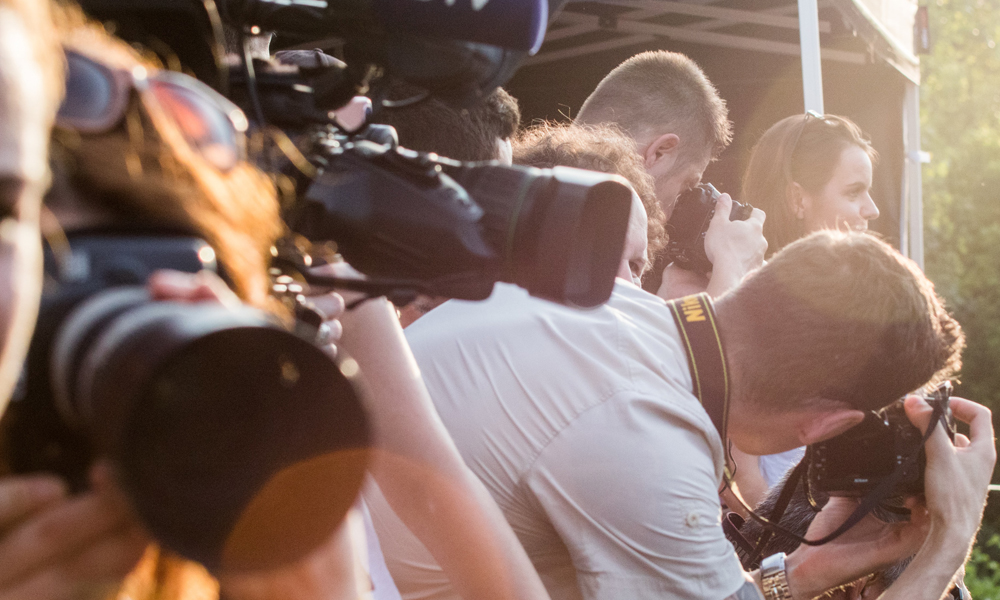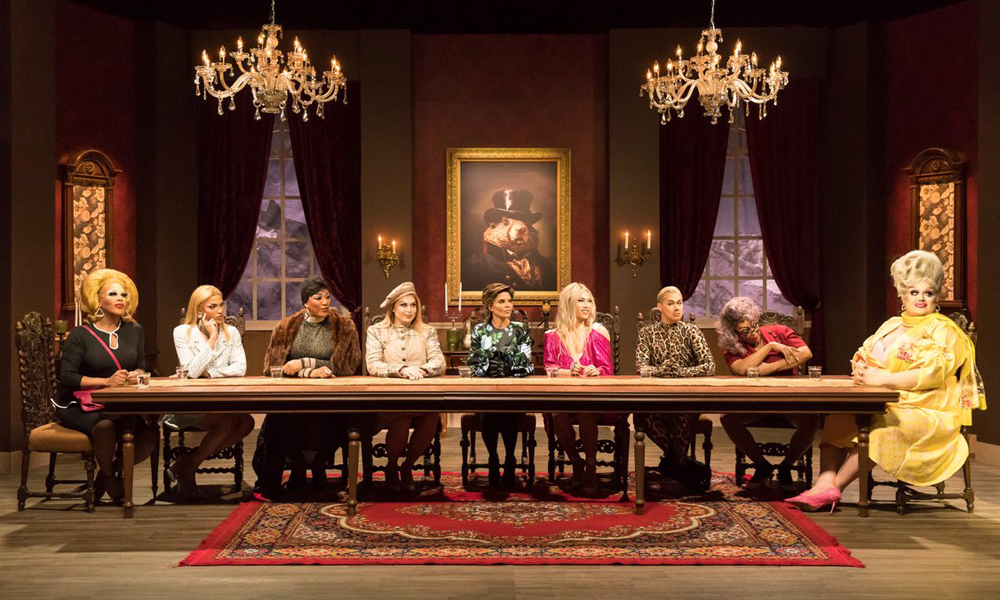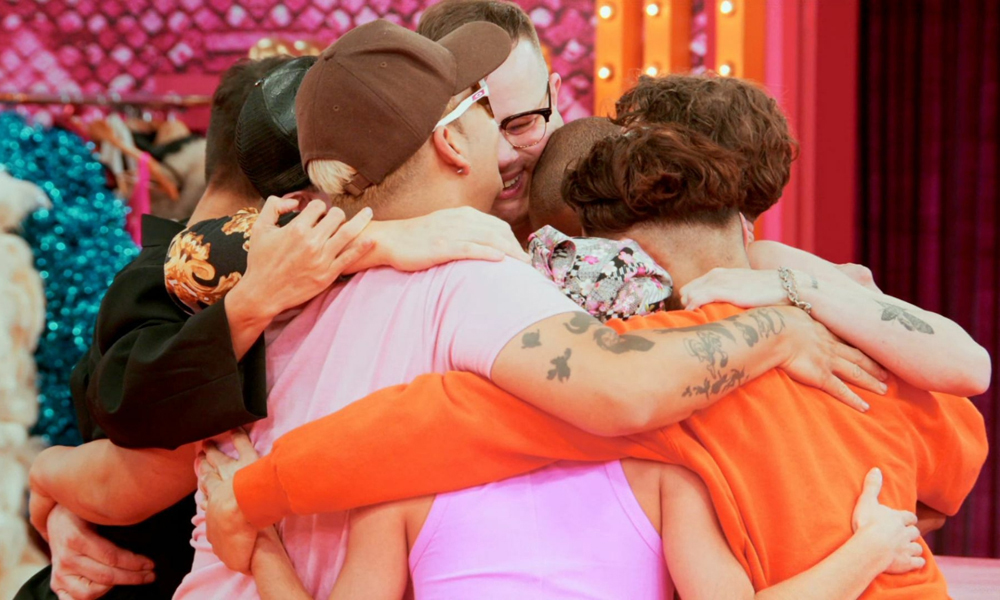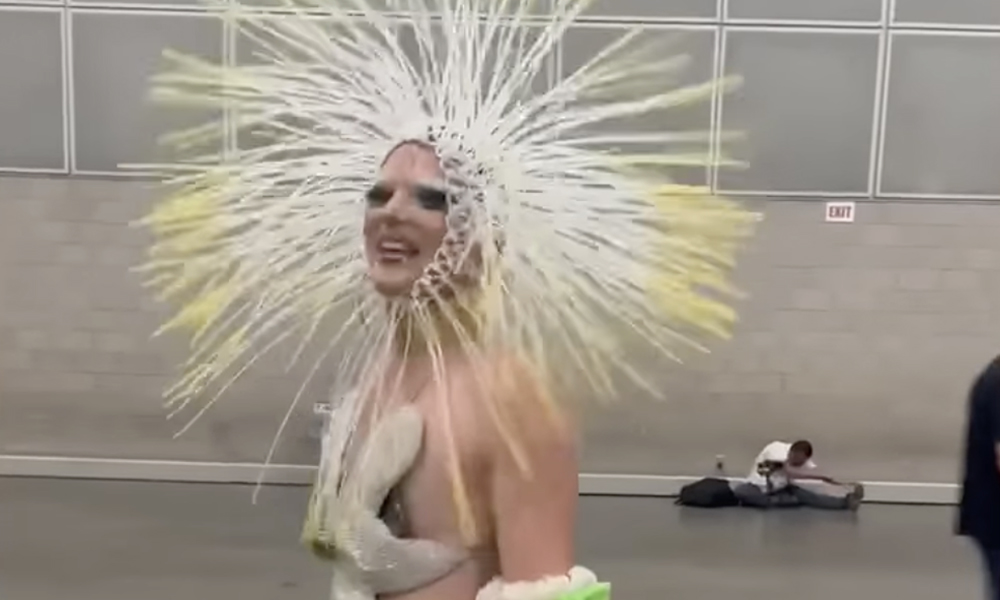What’s going on with the gay celebrities now gracing our screens?…
By Jesse Boland
“It’s so important to normalize queerness” – says a person who has never read the word “queer” in a book.
The past four decades have demonstrated remarkable strides in welcoming the LGBTQ+ community into the day-to-day lives of straight audiences through the mediums of Western entertainment, yet these extensions of media have still perpetuated the ideologies of heteronormativity by filtering who is to be deemed a respectable enough queer.
While there is no shortage of homosexual and transgender representation in Hollywood, it cannot be so safely said that queerness itself remains prevalent. The goal of queerness has never been to obtain its place in the realm of socially accepted respectability, but rather to abolish the very system that created the elitist system of normalness. Hollywood has, for the most part, succeeded in creating an image of queerness as love, kindness and acceptance through the positive representation of LGBTQ+ characters in Will & Grace and Modern Family as well as through celebrities framed as positive role models such as RuPaul and Ellen DeGeneres. But in doing so, it has created an image of what a respectable queer is supposed to look like, and delineated how whoever fails to fit within this mould is to be punished for failing to be normal.
The métier of a celebrity is to encapsulate a persona beguiling enough that it can be commodified by corporations and media conglomerates to promote not just their products but their values too. From the clothes they wear and the accounts they follow in their personal Instagram accounts, to the other famous people they choose to befriend, celebrities are a culmination of different brands forged together to create a niched super-brand. What this system of symbolic capital exchange serves to perpetuate is an evolution of corporate marketing through the extension of the celebrity as a vessel of a personified marketing campaign.
This is nothing new in the world of monetary capitalist gain, but when celebrities belonging to the LGBTQ+ community – a community historically rooted in anti-establishment liberation – are deemed tame enough to be enlisted for corporate propaganda, that’s a problem.
While it cannot be dismissed that the push for positive representation of LGBTQ+ individuals in media has shifted the global perception of queer people by straight audiences into a more flattering light, this has occurred through the trapping of respectability politics that cater to the pernicious notion of the model minority myth. Queer celebrities have been lionized as being earnest, inspiring, kind, loving and endearing – and that has created an eerily pristine image of how queers are expected to perform if they are to be gifted respect in our heteronormative society.
Furthermore, queer celebrities who do not live up to this standard of assimilated respectability are not only deemed unrespectable but also unemployable. One may recall English model Munroe Bergdorf being enlisted as part of L’Oréal Paris’s diversity & inclusion campaign in 2017 due to her being a Black trans woman, only to be swiftly fired after publicly denouncing the compliance of all white people in violent white supremacy. What Bergdorf’s firing demonstrated was the raw essence of rainbow capitalism: the impossibility for corporations to ever be allies, as the mission of their opaque progressiveness is merely to homogenize diversity itself as means of commodifying anti-commodification.
Now, does this mean that all celebrities are inherently class traitors and pro-establishment because of their commercial success? Not necessarily.
Though RuPaul may currently be fracking the state of Wyoming dryer than his wigs on Season 2 while Ellen DeGeneres promotes a line of cruelty-free skincare products during her downtime from emotionally abusing her roster of underpaid production assistants, a new generation of LGBTQ+ entertainers is showing that they do not need to sacrifice their integrity to succeed. Actor/writer Jaboukie Young-White recently signed on to write and executive co-produce The Gang’s All Queer: The Lives of Gay Gang Members on HBO alongside Issa Rae after a tremendously successful career, despite having the blue checkmark removed from his Twitter page for impersonating the FBI and Joe Biden too many times. Comedian Joel Kim Booster’s risqué stand-up material discussing group sex and evil white gays probably won’t earn him a brand sponsorship from Coca-Cola, but it hasn’t hindered him from numerous television writing gigs in addition to his debut feature film Fire Island (slated for a 2022 premiere). Then, of course, there’s history’s most powerful Barb, Lil Nas X: if he’s not sitting atop the Billboard chart for singing about bottoming, then he’s at the top of Twitter’s Trending Now topics for sending (fellow Barb) Tucker Carlson into a mental tailspin using only a meme of Mr. Krabs blowing Squidward.
What these gay celebs and others like them represent is a chaotic energy that current mainstream media is unable to repackage for mass consumption. The perturbing rawness of their queerness is not intended to generate empathy and understanding from straight audiences, but simply to exist in their own authentic truths for their queer – and even cool straight – followers to fuck with. With corporations spending millions of dollars every year on marketing campaigns designed to emulate the lingo and trends of counter-cultural groups to feign relatability in order to make sales, younger audiences raised on the internet can easily spot faux authenticity. While the Wendy’s Twitter account may frequently butcher ballroom lingo as a means of commodifying queer culture to sell chicken nuggets, I know she’s not real enough to say faggot.
Most importantly, when we see these celebrities being able to succeed without watering down the authenticity of their ludicrousness, it demonstrates the power that queerness holds to be free of the need to assimilate to the conformity of the non-threatening gay trope. When we as consumers put our money behind chaotic gays by directly funding their projects and art, we are freeing them from the dependency to sell out to brand sponsorships that would have them dilute the debaucherous nature of their authentic selves for the sake of appealing to the masses of heteronormative consumers.
Every June, there is a debate as to whether or not kink belongs at Pride, with little progress being made each time it comes around. Regardless of your stance on kink itself, it is imperative to remember that the bacchanal nature of kink is still too taboo to be commodified by corporations and thus it is the one thing protecting Pride from being fully consumed by rainbow capitalism. In the same way, these chaotic gay celebs and their unwillingness to tone it down for the sake of broadening their brand are perhaps the only thing keeping the trueness of queerness alive in media. We cannot normalize queerness, for queerness is an opposition against normality itself, a system of standardization that exists to punish whatever is considered to be other. When we ask for acceptance, we are giving others the power to either accept or reject us when we do not need their approval.
—
JESSE BOLAND is that gay kid in class who your English teacher always believed in. He’s a graduate of English at Ryerson University with a passion for giving a voice to people who don’t have data on their phones and who chases his dreams by foot because he never got his driver’s licence.

The Rise Of The Chaotic Gay Celebs
Related Articles
Canada’s Drag Race Canada vs The World Season 2 Episode 2 RECAP: The Hole
The queens take on an improv challenge disguised as a reality tv show. Lisa Rinna is a guest judge
RuPaul’s Drag Race All Stars Season 9 Episode 12 Recap: Grand Finale Variety Extravaganza: Part 2
The results of the lipstick vote are revealed and three final queens battle for the all star crown and title. Actress Connie Britton is a guest judge
Willam Was Removed From DragCon 2024
Now Willam is speaking out saying that they were escorted out of the venue by 11 cops and security guards






POST A COMMENT